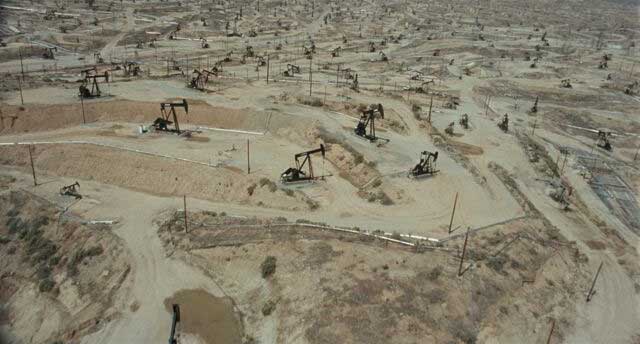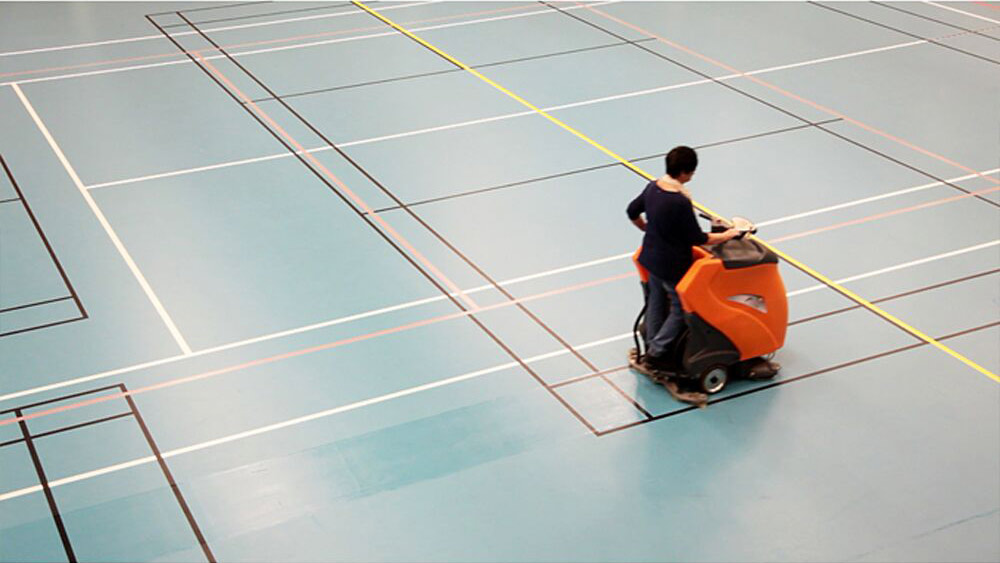Screen City på RKS

Rogaland Kunstsenter samarbeider med Screen City igjen og viser to arbeider og er vertskap for en kunstnerpresentasjon. I Bakspeilet vises Beathe C. Rønnings Meditations on Work III og inne i galleriet viser vi Rosa Barbas Time as Perspective.
 For the past eight years Beathe C Rønning has been filming manual and mechanical work processes. What interests her in these Meditations is the choreography that comes straight from the body, and from the routine operation of machines. Or that doesn’t. In practical terms, Meditations on Work is a three-channel video piece with a specially composed soundtrack, a soundless video composition showing sequences of people at work overlaid with scrolling text (II), and a booklet with stills and text. Each sequence is prosaic and commonplace, rooted in the here and now. The steady pulse of work that goes on around us all the time. For Rønning, it is here we find the greatest poetic potential, because here the beauty is subtle yet accessible. “Work is of two kinds: first, altering the position of matter at or near the earth’s surface relatively to other such matter; second, telling other people to do so.” (Bertrand Russell) An artist’s work falls between the manual and the abstract. Rønning neither give nor follow orders. She observes, films and reflects, refining impressions through the rhythm of composition, the pulse of the soundtrack, the focus of the text. “Copenhagen, Kvinesdal, Torp, Oslo, Berlin, Lier, Drammen, Sande: I must thank everyone who has allowed me to film them, and for all the goodwill I have met with.” (Beathe C. Rønning) During the Screen City Festival, Beathe will present Meditations on Work – edition 3, with a newly composed text. The work is presented on the Rogaland Kunstsenter facade window.
For the past eight years Beathe C Rønning has been filming manual and mechanical work processes. What interests her in these Meditations is the choreography that comes straight from the body, and from the routine operation of machines. Or that doesn’t. In practical terms, Meditations on Work is a three-channel video piece with a specially composed soundtrack, a soundless video composition showing sequences of people at work overlaid with scrolling text (II), and a booklet with stills and text. Each sequence is prosaic and commonplace, rooted in the here and now. The steady pulse of work that goes on around us all the time. For Rønning, it is here we find the greatest poetic potential, because here the beauty is subtle yet accessible. “Work is of two kinds: first, altering the position of matter at or near the earth’s surface relatively to other such matter; second, telling other people to do so.” (Bertrand Russell) An artist’s work falls between the manual and the abstract. Rønning neither give nor follow orders. She observes, films and reflects, refining impressions through the rhythm of composition, the pulse of the soundtrack, the focus of the text. “Copenhagen, Kvinesdal, Torp, Oslo, Berlin, Lier, Drammen, Sande: I must thank everyone who has allowed me to film them, and for all the goodwill I have met with.” (Beathe C. Rønning) During the Screen City Festival, Beathe will present Meditations on Work – edition 3, with a newly composed text. The work is presented on the Rogaland Kunstsenter facade window.
Time as Perspective(2012) was shot in the Texan desert and shows huge oil pumps constantly repeating the same mechanical movement. Besides its meditative sculptural quality in the landscape, it touches on strong social and political issues with its references to exploitation of natural resources. The work of Rosa Barba is based on radical experimentation with the medium of film and proposes a new language for the medium. Her pieces not only dissect cinema itself (celluloid, light, color, sound, image, movement, time) but also fragment narration into different layers, implying a level of abstraction in which imagination and a conceptual approach play a decisive role. Concurrently, the concept of timeless is also central to the film. There is no clear dating of the film and one is left to wonder if this is a vision from the past or a foresight of the future, which is also underlined by the film’s political dimension. For Barba, this vision of time is an instrument for the way in which she thinks about film as film. In this work, one reads ‘time is the result of an imperfect perception of reality’. This play with the perception of reality is central to Rosa Barba’s work: she proposes a parallel and alternative way of looking at things, where boundaries are no longer defined.